April 25, 2023
Muscle health is a topic I repeatedly visit—and for good reason.
Healthy muscles (and you'll learn what “healthy muscle” actually means in today's article) bring a plethora of benefits, such as accelerated fat loss, improved metabolic function, decreased frailty, a place to stock away extra glucose for when you need it most, and, importantly, a protective effect on your DNA.
In addition to devoting an entire chapter in my book Boundless to muscle-building—titled Sexy Forever: How To Build Functional Muscle For Life—I've covered the importance of muscular health in detail in the following articles:
- Ben Greenfield's Entire Muscle Building Program Unveiled: Top 6 Muscle Building Workouts, Diet For Building Muscle Without Gaining Fat & The Best Supplements For Muscle Mass.
- Biohack Your Body For Muscle Gain & Fat Loss: Part 1 – Ben Greenfield’s Top Recommended Science, Gear & Tools For Building The Ultimate Human.
- Biohack Your Body For Muscle Gain & Fat Loss: Part 2 – Ben Greenfield’s Top Recommended Science, Gear & Tools For Building The Ultimate Human.
- Advanced Muscle Building With Science: How To Biohack Body Composition With Stem Cells, NAD & One Workout Per Week.
- The 19 Best Full-Body Workouts Ben Greenfield Uses For His Year-Round Exercise Routine.
- Inside Isometrics: The Performance-Enhancing, Muscle-Boosting, Long-Forgotten Exercise Modality That You Can Do Anywhere.
- Biohacking Muscle Growth: How To Maximize Anabolism & Muscle Hypertrophy Using Targeted Delivery Of Nutrients To Muscle Tissue During Exercise, With Professional Bodybuilder Milos Sarcev.
- Nerdy Ways To Lose Fat, Build Muscle & Maintain A Nice Body As You Age.
- Is This The World’s Most Efficient, Biohacked Workout? The New Full-Body Electro Muscle Stimulation Science by Katalyst (& How To Build Muscle In 20 Minutes) With Bjoern Woltermann.
While there are plenty of things you can do to look, perform, and feel your best both now and well into your senior years, building and maintaining muscle mass now may, in fact, be the quickest, most powerful strategy that you can implement.
That means diet and exercise, right? Certainly, but what if I told you there were even easier ways to build muscle? Exciting new research is revealing little-known nutrients that may contribute to this process in new and exciting ways. In particular, you’ll want to know about Urolithin A.
Urolithin A (UA) is one of these nutrients with a growing body of well-conducted research backing its credibility.
That's why I asked Jen Scheinman, MS, LDN, CDN of Timeline to write this guest article on muscle health. Timeline is the global leader in Urolithin A research and the producer of Mitopure, a new supplement that delivers a highly pure form of Urolithin A, which you'll soon learn plays a key role in maintaining healthy muscle.
Now, you might be thinking, “Urolithin A? I've never even heard of it.” And that's precisely what makes this article so engaging and informative. Jen will break down the science behind Urolithin A, explaining what it is, how it's created in your body, and its connection to muscle and mitochondrial health. She'll also touch on the vital role of gut health in the production of Urolithin A.
Altogether, you're about to get a crash course on one of the coolest pieces of new fringe health information on my radar.
Muscle Health: What Is It & Why Is It Important?
Whether you compete at the highest levels of sport, maintain an active lifestyle, or find yourself too caught up in the daily grind to always look after yourself, health experts agree that muscle health and strength should be a focus for living a long and healthy life.
Healthy muscles possess several key characteristics that contribute to their overall function and vitality.
These include the ability to generate force and power, which enables muscles to effectively perform various movements and support the body's daily activities. Additionally, a high mitochondrial density within muscle cells is crucial for optimal energy production and endurance, as mitochondria are responsible for converting nutrients into energy. Lastly, a well-balanced composition of muscle fiber types—consisting of both slow-twitch (Type I) fibers for endurance and fast-twitch (Type II) fibers for quick, powerful movements—ensures that the muscles can adapt and respond to a wide range of physical demands.
Strong and healthy muscles not only help you perform better in your favorite activities, but they also play a crucial role in the aging process. As you age, your muscle mass and strength naturally decline. This decline can start in your 30s or 40s, which is much earlier than most people think. Sarcopenia, the term that defines significant muscle loss, is associated with frailty and increased mortality in older adults.
The World Health Organization identified the preservation of muscle mass and the prevention of frailty as key indicators of healthy aging. Currently, nutrition and exercise are the two main interventions to prevent sarcopenia and its adverse outcomes. Such lifestyle changes can be a challenge, though.
What if there was a way to preserve muscular strength, or even improve it without diet or exercise? Researchers studying Urolithin A have been asking just this question.
Urolithin A 101
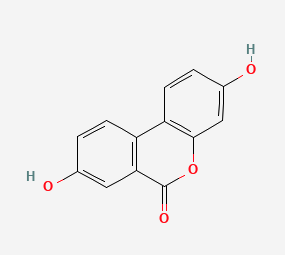 Before taking a closer look at the science behind Urolithin A and muscle strength, it is important to have a basic understanding of this novel compound and its role in cellular health.
Before taking a closer look at the science behind Urolithin A and muscle strength, it is important to have a basic understanding of this novel compound and its role in cellular health.
Urolithin A is a postbiotic, a natural substance that is produced in your body by your gut microbiome.
When you eat plant compounds called ellagitannins (found in pomegranates, berries, and some nuts) they can be converted into Urolithin A by bacteria in your gut, where it is then absorbed into your bloodstream and travels to the cells throughout your body.
Once inside the cell, Urolithin A targets the mitochondria, the powerhouses of the cell. These organelles are responsible for creating roughly 90% of the energy you need to live. Over time, your mitochondria can become damaged and dysfunctional, and their ability to generate energy declines. It is theorized that this dysfunction is a key contributor to age-related disease.
Given the critical role mitochondria play in sustaining good health, your body has created a biological system where older, damaged mitochondria can be recycled into healthier, more efficient ones. Called mitophagy, this essential quality control process is where Urolithin A works its magic. Urolithin A has been shown to stimulate mitophagy, introducing a new way to address improved healthspan.
Muscle Health Depends On Mitochondrial Health
It should come as no surprise that energy-dependent tissue such as muscle has a high concentration of energy-generating mitochondria.
In fact, a single skeletal muscle cell can have within it several thousand mitochondria.
Studies have shown that the decline in mitochondrial function associated with age may be a key contributor to muscle health and performance.
Once the connection between muscle health and energy production is understood, identifying interventions that improve mitochondrial performance become important steps to prevent or, better yet, reverse age-related muscle decline; a huge win if you're looking to live a longer and healthier life (and who isn't?). The recent research behind Urolithin A suggests that a solution may not be so far off.
Urolithin A & Gut Health
As previously mentioned, Urolithin A can be made by your gut microbiome, so theoretically eating a diet rich in pomegranates, berries, and nuts would supply you with the precursor molecules you need to make enough.
Unfortunately, even if that was more convenient and affordable, the research indicates otherwise.
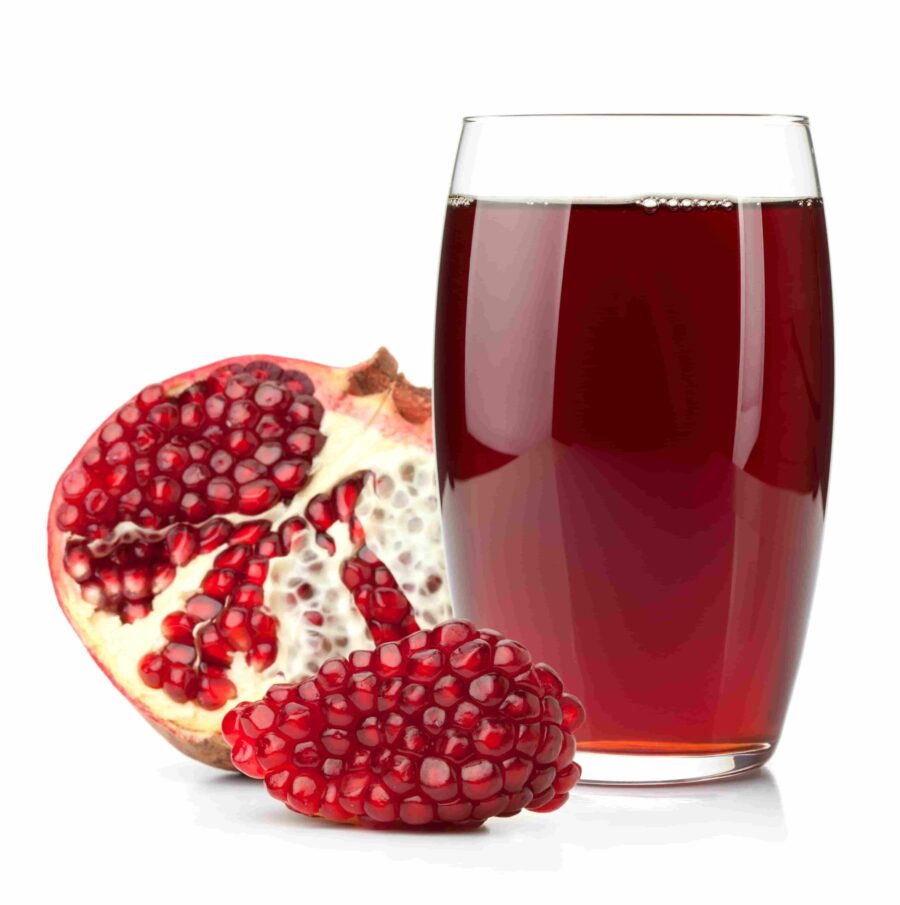 Converting Urolithin A is more complex than it may seem. A clinical trial with 100 participants found that only 12% of the population entering the study had Urolithin A in their blood. To evaluate the effect of diet alone to improve that number, researchers then provided participants with plant-based precursors in the form of pomegranate juice. (Interesting side note, while pomegranates are rich in the ellagitannins needed to convert Urolithin A, not all parts of the pomegranate are equal. In fact, the parts richest in the precursors are the pith and peel, not the ruby arils most often eaten. When pomegranates are juiced, however, the pith and portions of the peel are included making pomegranate juice a rich source of ellagitannins).
Converting Urolithin A is more complex than it may seem. A clinical trial with 100 participants found that only 12% of the population entering the study had Urolithin A in their blood. To evaluate the effect of diet alone to improve that number, researchers then provided participants with plant-based precursors in the form of pomegranate juice. (Interesting side note, while pomegranates are rich in the ellagitannins needed to convert Urolithin A, not all parts of the pomegranate are equal. In fact, the parts richest in the precursors are the pith and peel, not the ruby arils most often eaten. When pomegranates are juiced, however, the pith and portions of the peel are included making pomegranate juice a rich source of ellagitannins).
What the researchers discovered was that only about 40% of the people who drank the pomegranate juice were able to convert these precursors into Urolithin A, and not all of them produced therapeutic levels of Urolithin A from the diet. This suggests that the critical factor is the gut microbiome and its ability, or inability, to convert Urolithin A. More research is needed to identify the complex mix of microflora required to convert Urolithin A.
Urolithin A Improves Muscle Health
Knowing that muscle tissue has a high concentration of mitochondria, researchers hypothesized that targeting mitochondrial health could support muscle health.
Two recent studies are beginning to shed some light on this connection.
Study 1: The Energize Trial
Published in the Journal of American Medical Association in January 2022, the Energize Trial was a randomized, double-blind, placebo-controlled study that looked at the effects of 1000 mg of Urolithin A in older adults compared to placebo. The researchers tested muscle fatigue and endurance, and biomarkers of mitochondrial health at baseline, at two months, and at four months.
Skeletal muscle endurance (as measured by the number of contractions until failure) was tested in the hand and leg. Over a period of four months, significant improvements were seen in the Urolithin A group compared to the placebo group. Additionally, clinically relevant improvements in a 6-minute walk test. This is a test that measures how many meters one can walk in six minutes.
Plasma biomarkers also improved in this trial. C-reactive protein, a marker of inflammation, significantly decreased compared to the placebo. Acylcarnitines and ceramides, which are markers of mitochondrial health significantly improved.
What’s particularly surprising about the results is that improvement occurred in the absence of changes to activity level or diet.
The Energize Trial was an important first step in demonstrating the safety and efficacy of Urolithin A for older adults, and it supports the need for continued studies.
Study 2: The Atlas Trial
Published in the May 2022 issue of Cell Reports Medicine, the Atlas Trial built on the strong foundation the Energize Trial laid out.
The Atlas Trial looked at the effect of Urolithin A on muscle strength and performance, this time in healthy middle-aged adults.
Eighty-eight participants aged 40-64 were randomized to receive either 500 mg Urolithin A, 1000 mg Urolithin A, or a placebo. The investigators selected people who were overweight and had low physical endurance so they could get a good measure of the impact of the intervention.
Just like the Energize Trial, this study showed significant improvements in muscular strength and serum biomarkers of mitochondrial function and health. Muscular strength was measured using average peak torque, and both the 500 and 1000 mg Urolithin A group saw significant improvements compared to their baseline measurements. Interestingly the placebo group saw a significant decline in this measure.
Exercise performance was evaluated with a measure of Vo2 max with a stationary cycle ergometer and a six-minute walking test. The 1000 mg group saw clinically meaningful improvements compared to placebo (+10% peak Vo2 and +7% walking distance) with these measures as well. Positive biomarkers were observed, with both treatment groups demonstrating improvements in measures of mitophagy and C-reactive protein.
Again, these findings are impressive, considering the absence of exercise and dietary intervention during the trial.
The Future Of Urolithin A Research
The Energize Trial and the Atlas Trial detailed above lay a strong foundation in the story of Urolithin A and muscle health, but additional research is already underway.
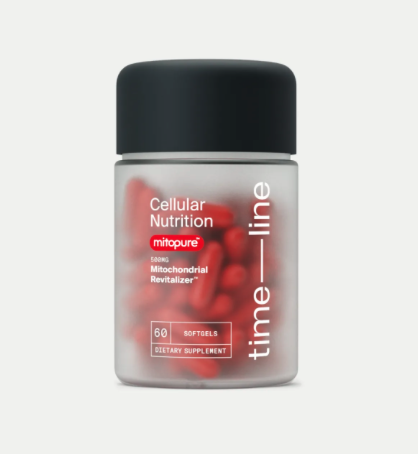 While they build a case for using Urolithin A in untrained adults, the question remains how will Urolithin A impact highly trained athletes?
While they build a case for using Urolithin A in untrained adults, the question remains how will Urolithin A impact highly trained athletes?
That’s where Professor Louise Burke and her research team come in.
Dr. Burke is a sports dietitian and researcher at Australian Catholic University. She’s in the midst of conducting a trial to investigate the use of Mitopure, Timeline's Urolithin A supplement, in trained endurance runners. This randomized, double-blind, placebo-controlled trial will look at biomarkers of muscle damage and recovery, such as creatine kinase and CRP. The study will also assess changes in performance in a 3000m track race.
Another muscle health study is currently underway. Dr. Stuart Phillips, a researcher at McMaster University, and Nestlé Health Science Labs will be investigating how Urolithin A impacts muscle health in a rehabilitation center. When patients are immobilized due to injury or illness, rapid muscle wasting can occur. This trial will compare the current standard of care dietary intervention – high protein supplementation – with protein plus Urolithin A to see if it can help reduce or prevent muscle loss associated with periods of immobilization.
The full scope of UA's impact on muscle health is yet to be uncovered. These cutting-edge investigations hold the promise of revolutionizing the understanding of muscle maintenance and recovery, potentially transforming the way athletic performance and injury management are approached.
Summary
The attainment of muscle is one of the most important factors in healthy aging. However, not everyone can exercise or obtain the nutrition necessary for real positive muscle growth and maintenance.
But what if you don’t have to?
Urolithin A may be able to solve this problem. This little molecule made in your gut biome is an incredible asset for muscle health. By supporting the ability to generate force and power, maintaining a high mitochondrial density for energy production, and fostering a balanced composition of muscle fiber types, Urolithin A could play a vital role in enhancing overall well-being and promoting healthy aging, even if you already engage in a healthy lifestyle. And for those who have difficulty with exercise or nutrition, this may offer them an alternative way to get some of those benefits.
In review:
- Urolithin A is a postbiotic, created in the gut from compounds in certain plant foods called ellagitannins. Urolithin A then goes to the mitochondria where it is used for energy.
- Not everyone converts ellagitannins to Urolithin-A, and even for those who do, the levels may be low. The health of the gut microbiome may be a crucial piece of these functions.
- Urolithin A has been shown in studies to improve muscle function, as well as lower inflammation markers. Simultaneously, Urolithin A increases indicators of mitochondrial health.
- Ongoing research on Urolithin A continues to show great promise, including the work of Professor Louise Burke, along with another study on muscle growth by Nestlé Health Science Labs.
All in all, I’m very excited by the implications of these studies on how Urolithin A can help both athletic and aging populations alike, and I want to help you take advantage of it too by giving you a code for 10% off the Mitopure product I use, and that is the Urolithin A supplement being researched by Lousie Burke’s team. Go to Timeline Nutrition and use the code Ben10 for 10% off your first order of Mitopure (not applicable to samples).
Because muscle is so important for both health and longevity, and not everyone can access exercise or diet, I think Urolithin A and other compounds like it are an incredible tool to have in your arsenal. If any of you have used Mitopure or other Urolithin A products, I’d love for you to share your experiences and questions in the comments below, and Jen or I will respond.




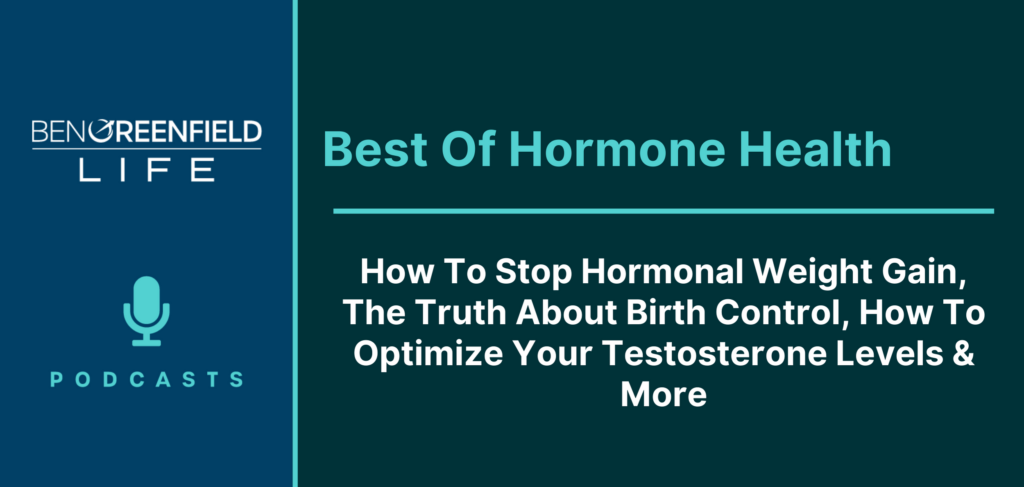
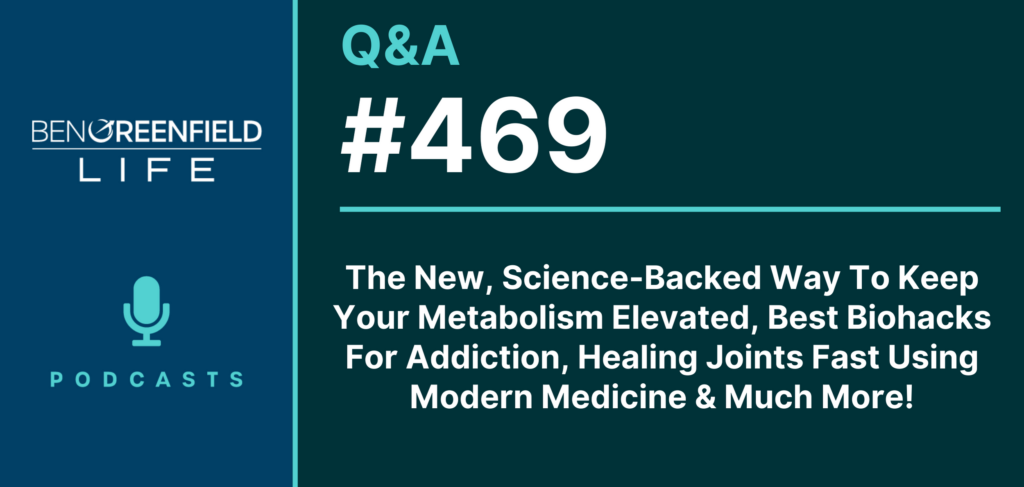








I appreciate this informative blog post on the importance of muscle health and its connection to mitochondrial health. The article highlights the benefits of having strong and healthy muscles, especially as we age, and how Urolithin A, a postbiotic produced in the gut, can help improve muscle health by targeting mitochondrial function. This article is a great resource for anyone looking to learn more about the importance of muscle health. Those who are looking for the best quality home gym equipment can visit here.
What effects – if any – did the studies show that U A had on the heart? ie. the heart muscle – valves etc.
I am 83 years old and in pretty good health…do have 2 knees replaced, 1 hip, and one foot/ankle replacement from playing tennis for years…also, take vitamins and am very busy in my life. I would love to firm up my body, would this product help.
I eat a pretty good diet and am looking forward to at least 10 more good years. I would appreciate any advise you can give me.